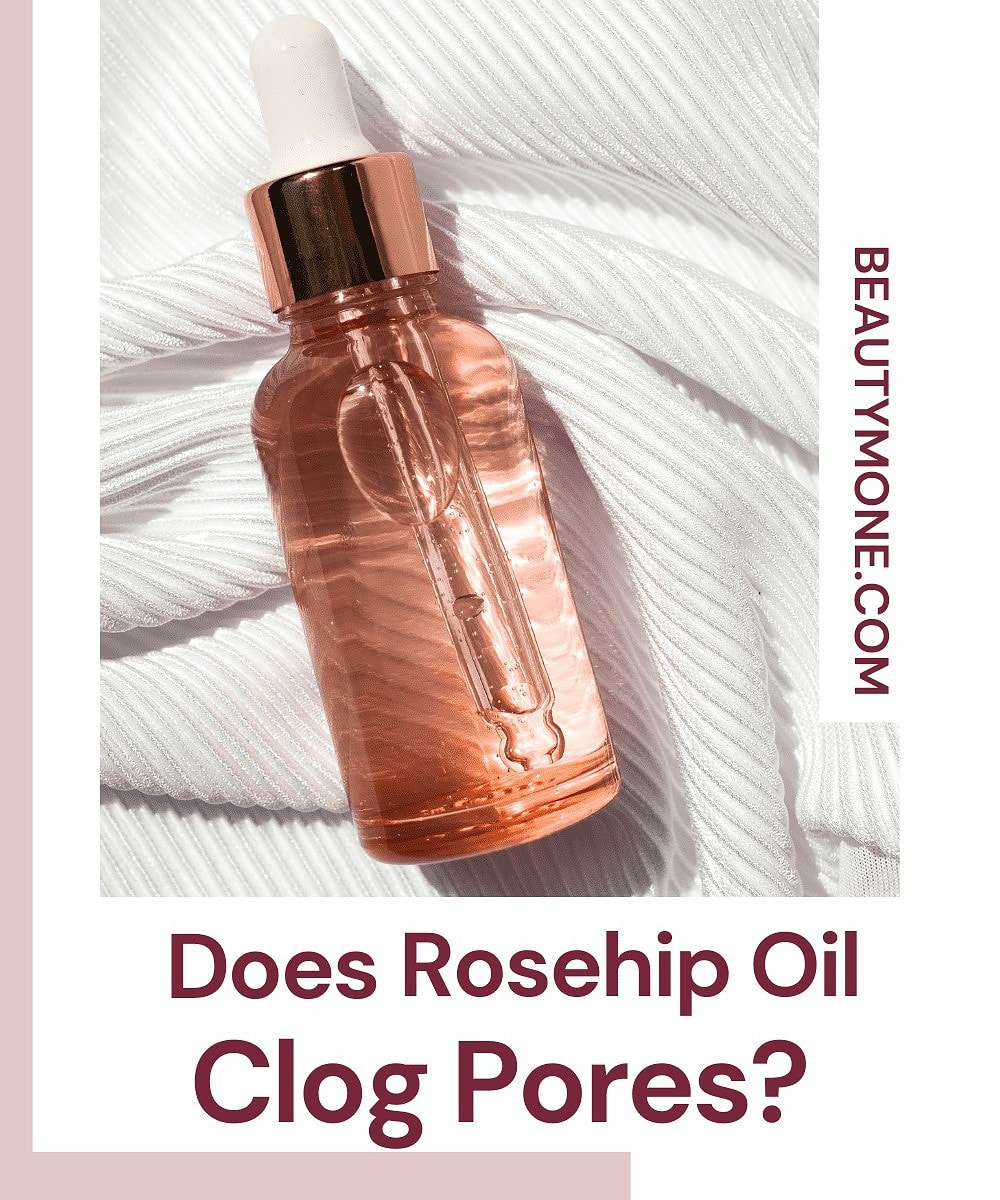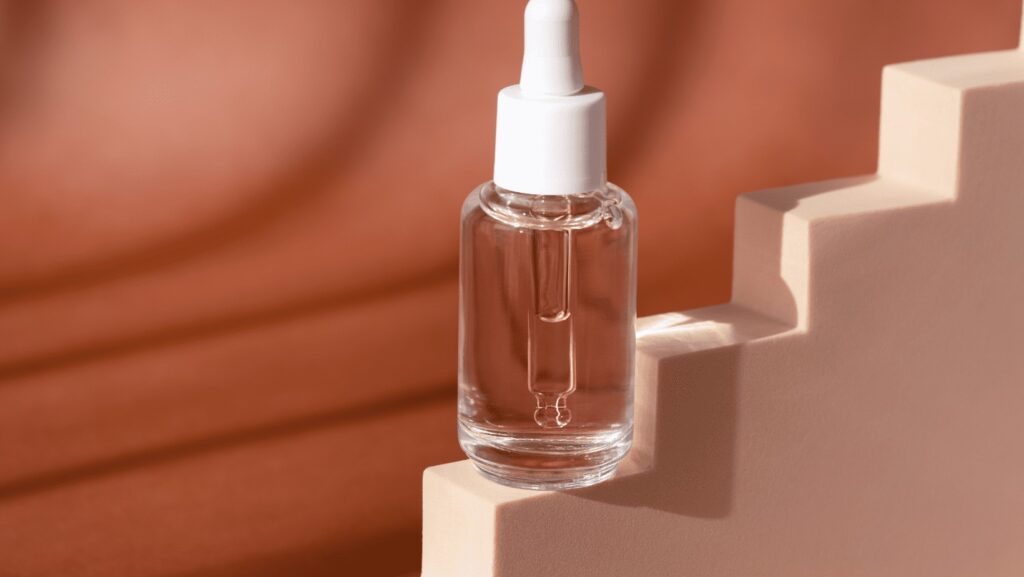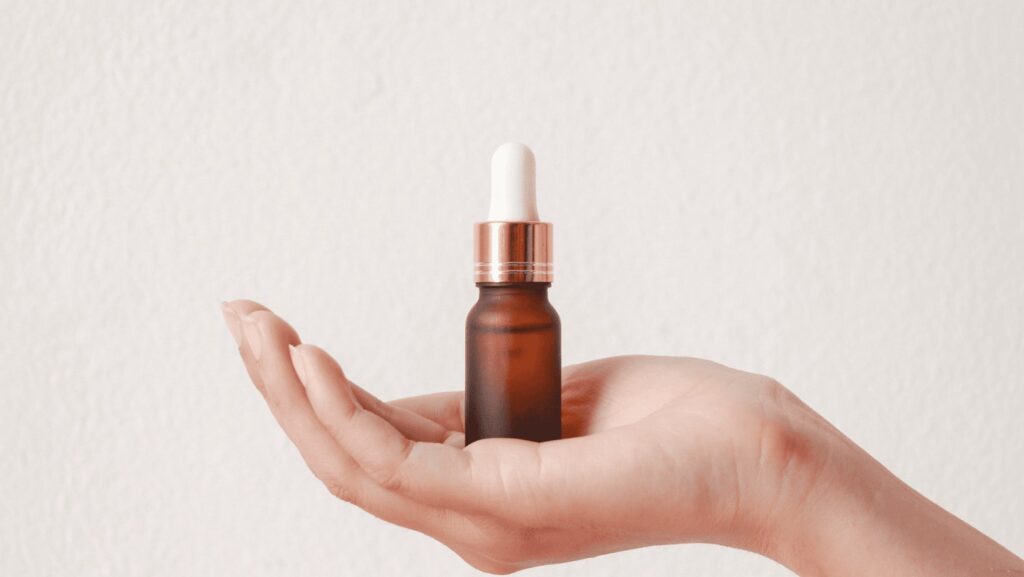
Rosehip oil has been making waves in the beauty industry in recent years for its numerous skin benefits. Rich in antioxidants and essential fatty acids, it is known for its ability to improve skin texture, reduce inflammation, and even out skin tone.
However, if you have acne-prone or oily skin, you may be wondering if this oil is suitable for you. One of the most common concerns is whether rosehip oil can clog pores and lead to breakouts.
In this article, we’ll take a deep dive into rosehip oil and explore its benefits, potential side effects, and how it stacks up against other popular skincare oils. We’ll also provide a step-by-step guide on how to use rosehip oil for the best results.
But first, we’re finding out the answer to the question, “Does rosehip oil clog pores?” So keep reading!
The Science Behind Rosehip Oil

Before we delve into the specific benefits of rosehip oil for the skin, let’s take a closer look at the science behind this ingredient.
Rosehip oil is extracted from the seeds of the wild rose bush, which grows in various regions of the world, including Chile and South Africa. The oil is rich in a variety of nutrients, including vitamin C, vitamin A, linoleic acid, and alpha-linolenic acid.
One of the key components of rosehip oil is vitamin C, which has been shown to have numerous benefits for the skin. Vitamin C is a powerful antioxidant that can help protect the skin from free radical damage caused by environmental stressors like pollution and UV radiation.
It can also help brighten the skin, fade hyperpigmentation, and promote collagen production, which is essential for maintaining a firm and youthful-looking skin.
Another important component of rosehip oil is vitamin A, also known as retinol. Retinol is a type of retinoid that has been shown to have anti-aging benefits for the skin.
It can help increase cell turnover, stimulate collagen production, and reduce the appearance of fine lines and wrinkles.
Overall, the combination of vitamins, antioxidants, and essential fatty acids in rosehip oil makes it a potent ingredient for improving the health and appearance of the skin.
Does Rosehip Oil Clog Pores?
To come straight to the point of this article, Rosehip Oil does not clog pores.
One of the biggest concerns that people have when it comes to using oils on their skin is the potential for clogged pores and breakouts. So, does rosehip oil clog pores? The short answer is no, it shouldn’t.
Is Rosehip Oil Comedogenic?
In fact, rosehip oil is considered non-comedogenic, which means it’s unlikely to clog pores or cause acne.
The reason for this is that rosehip oil has a low comedogenic rating, which is a measure of how likely an ingredient is to clog pores.
Comedogenic Rating
The rating system ranges from 0 to 5, with 0 being non-comedogenic and 5 being highly comedogenic. Rosehip oil typically has a rating of 1, which is considered low and safe for most skin types.
Generally, values of 2 and below are unlikely to cause clogged pores. So products containing ingredients with these scores are considered non-comedogenic. The comedogenic scale ranges from 0-5 and looks like this:
- 0: Does not clog pores
- 1: Low chance of clogging pores
- 2: Moderately low chance of clogging pores
- 3: Moderate chance of clogging pores
- 4: Relatively high chance of clogging pores
- 5: High chance of clogging pores
Is Rosehip Oil Good For All Skin Types?
Now that we know that rosehip oil is unlikely to clog pores or cause acne let’s explore whether it’s a good choice for all skin types. The answer to this question is yes, for the most part.
Because rosehip oil is non-comedogenic and relatively lightweight, it’s a good choice for oily or acne-prone skin types. It won’t leave a heavy or greasy feeling on the skin, and it can actually help balance oil production and reduce inflammation.
But even if you have dry or sensitive skin, you can still benefit from using rosehip oil. Its nourishing and hydrating properties can help soothe and moisturize dry or irritated skin, while the antioxidants and vitamins can help protect against environmental stressors.
Rosehip Oil For Acne-Prone Skin
If you have acne-prone skin, you might be hesitant to use oils on your face for fear of exacerbating breakouts. However, rosehip oil can actually be beneficial for acne-prone skin.
It’s rich in antioxidants like vitamin C, which can help brighten the complexion and reduce the appearance of dark spots left behind by acne. It also contains essential fatty acids that can help regulate sebum production and soothe inflammation.
Rosehip Oil For Sensitive Skin
Sensitive skin can be challenging to care for, as many skincare ingredients can cause irritation and redness. However, rosehip oil is generally well-tolerated by sensitive skin types. It’s gentle and non-irritating, and it contains natural anti-inflammatory properties that can help soothe and calm the skin.
If you have particularly sensitive skin, it’s always a good idea to do a patch test first and start with a small amount of product to see how your skin reacts. And if you notice any redness, itching, or other signs of irritation, discontinue use and consult with a dermatologist.

What Are The Rosehip Oil Benefits For The Skin?
Rosehip oil is a versatile skincare ingredient that offers a variety of benefits for the skin. Here are some of the top benefits of using rosehip oil:
Rosehip Oil For Anti-Aging
Rosehip oil is rich in antioxidants and essential fatty acids, which can help combat the signs of aging. Antioxidants help protect the skin from free radical damage, which can lead to fine lines, wrinkles, and other signs of aging. Essential fatty acids help nourish and hydrate the skin, improving its elasticity and firmness.
To use rosehip oil for anti-aging benefits, apply a small amount of oil to your face and neck in the morning and evening after cleansing. You can also mix a few drops of rosehip oil into your moisturizer for an extra boost of hydration.
Rosehip Oil For Scars
Rosehip oil is a popular ingredient in scar treatment products due to its ability to improve skin texture and reduce the appearance of scars. It contains natural retinoids, which can help stimulate collagen production and promote cell turnover, leading to smoother, more even skin.
To use rosehip oil for scar treatment, apply a small amount of oil directly to the affected area and massage it in gently. Repeat this process twice a day for the best results.
Rosehip Oil For Hyperpigmentation
Hyperpigmentation, or dark spots on the skin, can be frustrating to deal with. However, rosehip oil can be an effective natural remedy for reducing the appearance of hyperpigmentation. It’s rich in vitamin C, which can help brighten the skin and reduce the appearance of dark spots.
To use rosehip oil for hyperpigmentation, apply a small amount of oil to your face and neck in the morning and evening after cleansing.
You can also mix a few drops of rosehip oil into your moisturizer for an extra boost of hydration and skin-brightening benefits. Consistency is key, so be sure to use rosehip oil regularly for at least a few weeks to see results.
What Are The Potential Rosehip Oil Side Effects
While rosehip oil is generally considered safe for most people, it’s possible to experience some side effects. These may include skin irritation, redness, or a rash.
If you have sensitive skin or a history of allergic reactions, it’s a good idea to patch-test rosehip oil on a small area of skin before applying it all over your face or body.
It’s also worth noting that some people may experience increased sensitivity to sunlight after using rosehip oil. If you experience any adverse reactions, discontinue use immediately and consult a healthcare professional if needed.
Rosehip Oil vs. Other Oils For Skin
When it comes to choosing the right oil for your skin, it’s important to consider all your options. While rosehip oil is an excellent choice, it’s important to understand how it compares to other oils for the skin.
Rosehip Oil vs. Argan Oil
Argan oil is another popular oil for the skin, known for its hydrating and anti-aging properties. While both rosehip and argan oil offer similar benefits for the skin, there are some key differences to consider.
Argan oil is high in oleic acid, which makes it a heavier oil that may not be suitable for oily or acne-prone skin. Rosehip oil, on the other hand, is high in linoleic acid, making it a lighter oil that is less likely to clog pores.
Both oils are excellent for hydrating the skin and reducing the appearance of fine lines and wrinkles, so the choice ultimately comes down to personal preference and skin type.
When choosing between rosehip oil and argan oil, it’s important to consider your skin type and concerns. If you have oily or acne-prone skin, rosehip oil may be the better option, while those with dry or mature skin may prefer the heavier texture of argan oil.
Rosehip Oil vs. Jojoba Oil
Jojoba oil is another popular oil for the skin, known for its moisturizing and anti-inflammatory properties. While jojoba oil is an excellent choice for those with dry or sensitive skin, it may not offer the same anti-aging benefits as rosehip oil.
Rosehip oil is rich in antioxidants, vitamins A and C, and essential fatty acids, all of which work together to improve the overall health and appearance of the skin. While jojoba oil is an excellent moisturizer, it doesn’t offer the same range of benefits as rosehip oil.
Ultimately, the choice between rosehip oil and jojoba oil comes down to your specific skin concerns. If you’re looking for a multi-purpose oil that can improve the health and appearance of your skin in multiple ways, rosehip oil may be the better choice.
However, if you’re primarily looking for a moisturizing oil that won’t irritate sensitive skin, jojoba oil may be a better option.

How To Use Rosehip Oil For Skin
There are a few different ways to use rosehip oil for your skin, depending on your preferences and skincare routine. You can apply it directly to your skin as a moisturizer, mix it with other skincare products like serums or lotions, or use it as a carrier oil for essential oils.
Step-By-Step Guide How To Use Rosehip Oil For Skin
If you’re new to using rosehip oil or want some guidance on how to incorporate it into your skincare routine, here’s a step-by-step guide:
- Start with clean, dry skin. Wash your face with a gentle cleanser and pat dry with a clean towel.
- Dispense a few drops of rosehip oil onto your fingertips. You can use more or less depending on the area you’re applying it to and your personal preferences.
- Gently massage the oil into your skin using upward, circular motions. Pay special attention to any areas that are dry or prone to wrinkles, like around your eyes or mouth.
- Wait a few minutes to allow the oil to absorb fully into your skin. If you’re using other skincare products, you can layer them on top of the rosehip oil.
- Repeat once or twice a day, depending on your needs and preferences. Some people prefer to use rosehip oil in the morning as a moisturizer or in the evening as a part of their nighttime skincare routine.
Remember, everyone’s skin is different, and what works for one person may not work for another. If you’re unsure about how to use rosehip oil or how it will affect your skin, start with a small amount and patch-test on a small area of skin before applying it all over your face or body.
If you experience any adverse reactions, discontinue use immediately and consult a healthcare professional if needed.
Best Rosehip Oil For Skin Available
If you’re looking to try out rosehip oil for your skin, there are plenty of high-quality products available. Here are some of our top recommendations:
- Trilogy Certified Organic Rosehip Oil: This highly-rated product is 100% natural and organic and is known for its ability to improve skin tone and texture.
- Pai Rosehip BioRegenerate Oil: This oil is packed with skin-nourishing ingredients like omega fatty acids and antioxidants and is great for improving the appearance of fine lines and scars.
- The Ordinary 100% Organic Cold-Pressed Rose Hip Seed Oil: This affordable option is a popular choice for those looking to try rosehip oil for the first time. It’s cold-pressed to maintain its nutrients and is great for hydrating and improving skin texture.
- Herbivore Botanicals Phoenix Cell Regenerating Facial Oil: This luxurious facial oil combines rosehip oil with other nourishing ingredients like sea buckthorn and chia seed oil to deeply hydrate and regenerate the skin.
- Kora Organics Noni Glow Face Oil: While not strictly a rosehip oil product, this face oil from Kora Organics contains a blend of nourishing oils, including rosehip oil, that work together to improve skin tone, texture, and radiance.
- Facetheory Balancing Rosehip Oil O3: An 100% organic Rosehip Oil Jammed packed with vitamins, essential fatty acids, antioxidants + linoleic acid, and vitamin E to hydrate.
See more Rosehip Oil options here.
Conclusion On Does Rosehip Oil Clog Pores?
Rosehip oil is a versatile and beneficial skincare ingredient suitable for all skin types. Not only is it non-comedogenic and won’t clog pores, but it can also provide numerous benefits, such as anti-aging, scar treatment, and hyperpigmentation reduction.
When using rosehip oil, it’s important to be aware of any potential side effects and to choose a high-quality product from a trusted brand. With proper use and care, rosehip oil can be a valuable addition to any skincare routine.
If you still have questions about using Rosehip Oil, I answered even more crucial questions in the FAQ (frequently asked questions) section below.
You May Want To Know If…
- Does Argan Oil Clog Pores? The Real Results Are In
- Does Jojoba Oil Clog Pores? 5 Important Benefits Of This Oil
- Does Olive Oil Clog Pores? 4 Facts You Should Know
Frequently Asked Questions
